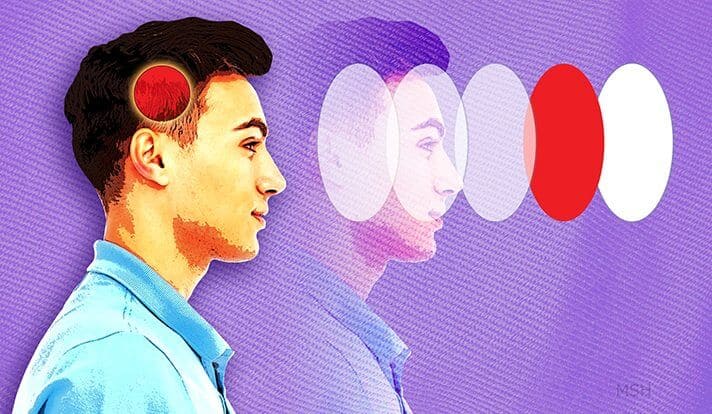Sometimes, decisions we believe we make consciously, such as clicking on a link on a webpage or reaching for a cup of coffee, have already been made — a trick of the mind that may happen more than we think, new research by Yale University psychologists suggest.
“Our minds may be rewriting history,” said Adam Bear, a Ph.D. student in the Department of Psychology and lead author of the paper published April 28 in the journal Psychological Science.
Bear and Paul Bloom performed a couple of simple experiments to test how we experience choices. In one experiment, participants were told that five white circles would appear on the computer screen in front of them and, in rapid-fire sequence, one would turn red. They were asked to predict which one would turn red and mentally note this. After a circle turned red, participants then recorded by keystroke whether they had chosen correctly, had chosen incorrectly, or had not had time to complete their choice.
The circle that turned red was always selected randomly, so probability dictates that participants should predict the correct circle 20% of the time. But when they only had a fraction of a second to make a prediction, these participants were likely to report that they correctly predicted which circle would change color more than 20% of the time. In contrast, when participants had more time to make their guess — approaching a full second — the reported number of accurate predictions dropped back to expected levels of 20% success, suggesting that participants weren’t simply lying about their accuracy to impress the experimenters.
What happened, Bear suggests, is that events were rearranged in subjects’ minds: People subconsciously perceived the color red before they predicted it would appear, but consciously experienced these two things in the opposite order. The conscious experience of choice may be constructed after we act — even when it feels like it is the cause of our behavior, say the researchers.
Bear and Bloom’s research builds on past work suggesting that many decisions seem to be under more conscious control than they actually are. In many cases, consciousness may simply be window dressing, note the researchers.
Bear said it is unknown whether this illusion is caused by a quirk in perceptual processing that can only be reproduced in the lab or whether it might have “far more pervasive effects on our everyday lives and sense of free will.”
If our reporting has informed or inspired you, please consider making a donation. Every contribution, no matter the size, empowers us to continue delivering accurate, engaging, and trustworthy science and medical news. Independent journalism requires time, effort, and resources—your support ensures we can keep uncovering the stories that matter most to you.
Join us in making knowledge accessible and impactful. Thank you for standing with us!


Interesting but it would seem problematic at best to say that these results shed light upon how we make decisions after reflection, especially difficult decisions fraught with ambiguity after much reflection.
I found this to be a very interesting article to read. Our mind operates in amazing ways and I thought this was surprising. I never thought that our mind would rearrange the order of events at times, so that in the case of this study, participants thought they had correctly guessed which circle would be read. This does help to explain some of those moments where it seems like we unconsciously decided to do things.